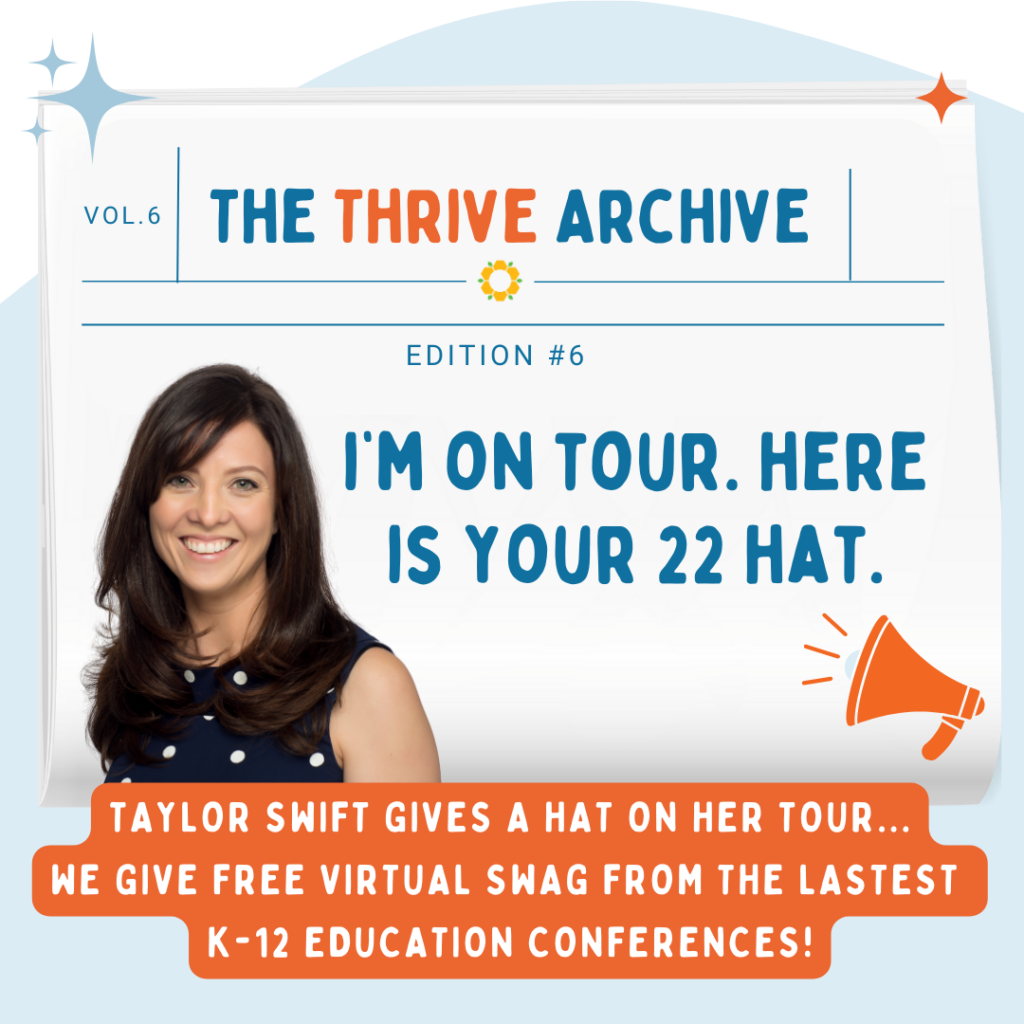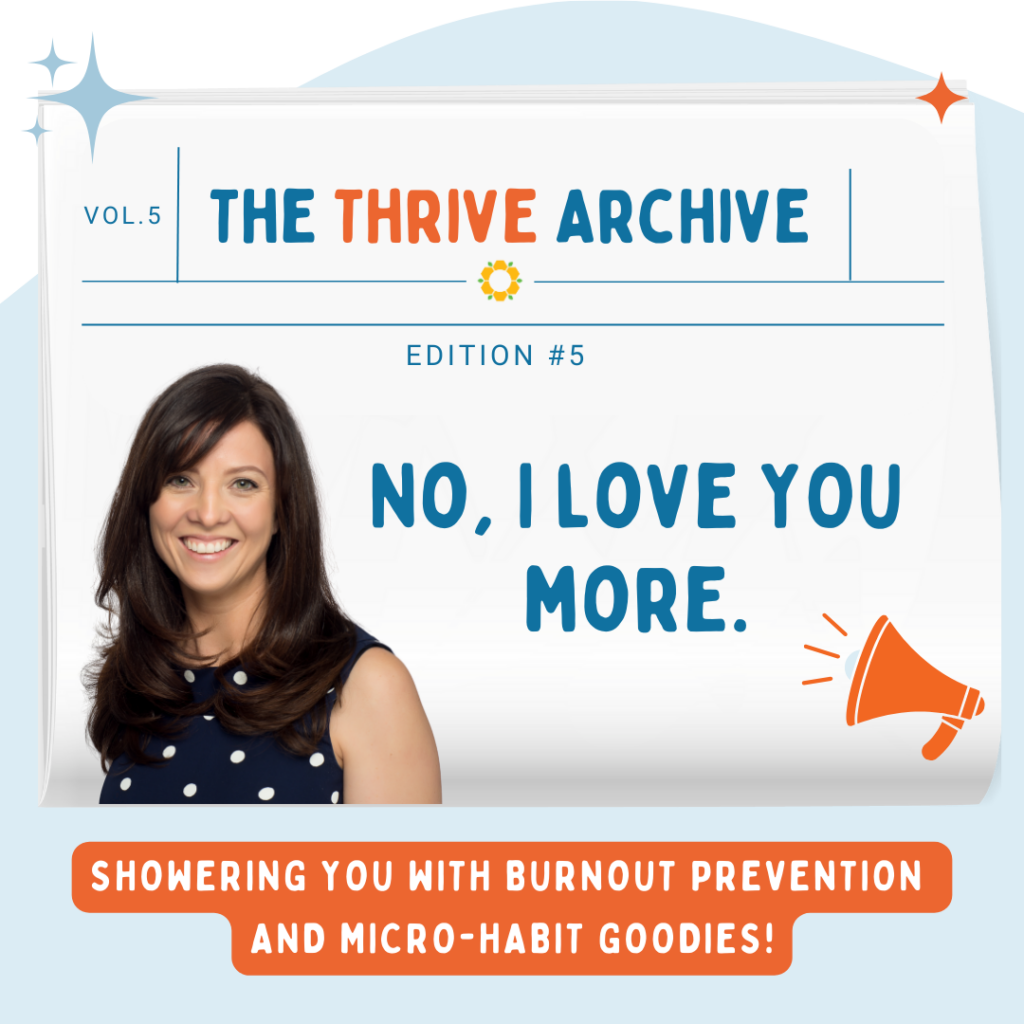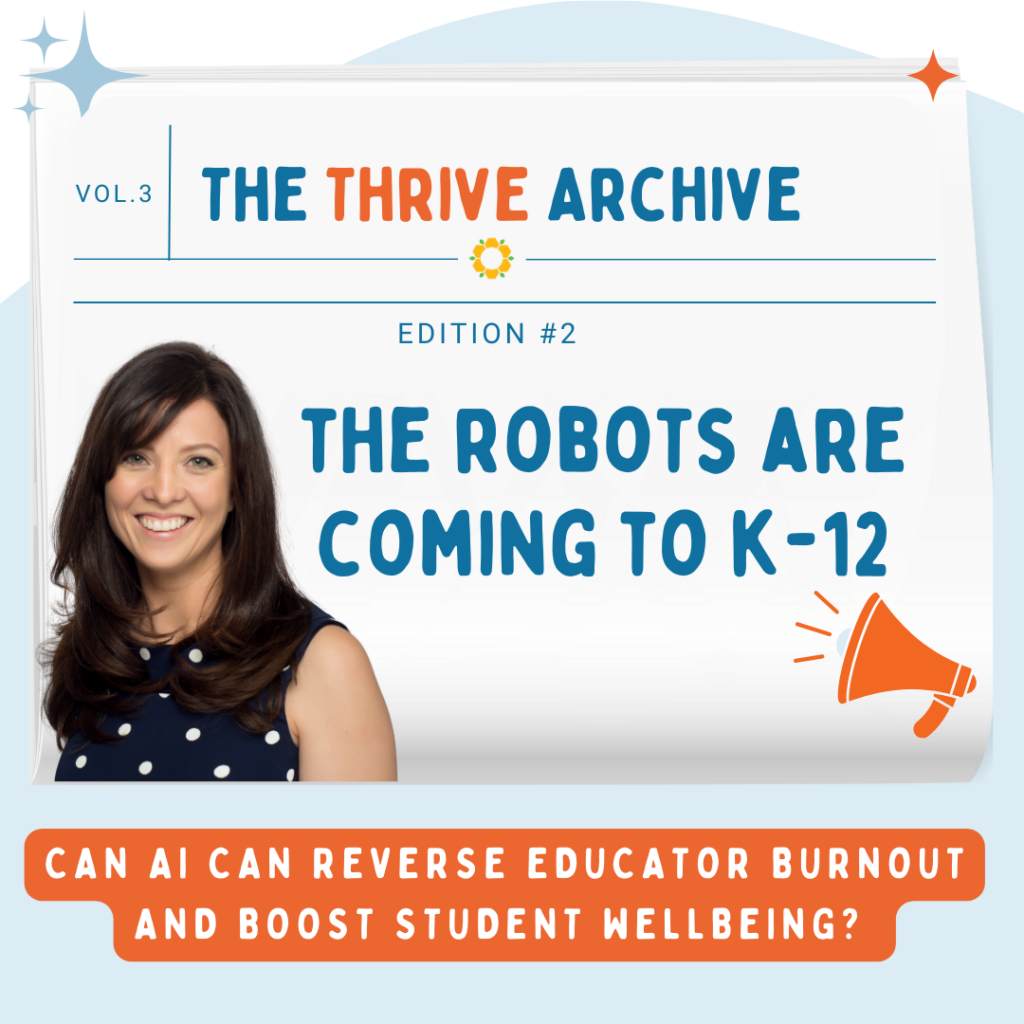- News
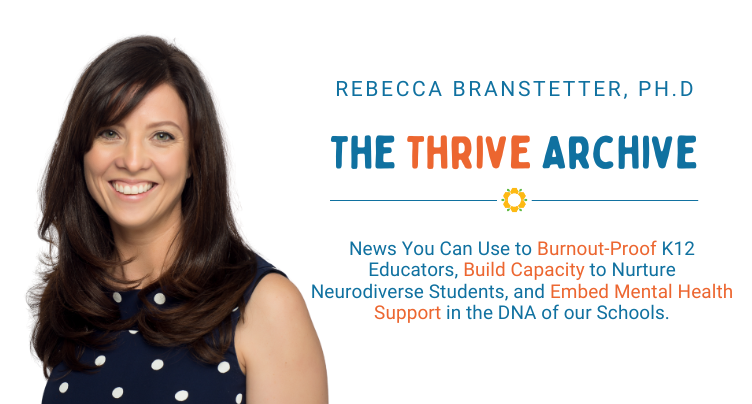
A recent Washington Post article grabbed my attention with this headline: “In a Crisis, Schools are 100,000 Mental Health Staff Short.” As a school psychologist myself, I am a “living statistic.” When I started out my career 20 years ago, I had 3000 students on my caseload. Kids were slipping through the cracks and I was burning myself to the ground trying to keep up. Over the years, the lowest I have ever had in any district is similar to the national average, 1:1200. Then, the pandemic drove up the need for mental health and learning services, but even in this crisis, our caseloads never went down.
The article goes on to explain that we currently have about a third of the workforce we need, and the pipeline for hiring mental health support is slow. To make matters worse, the attrition and burnout is high, so our students (especially neurodivergent ones who need specialized services) are left without much needed support. With this current reality, what can we do…today?
Prioritize Adult Wellness
As co-founder of The Thriving Students Collective, an organization dedicated to ending the cycle of burnout and stress in K12, I talk to a lot of district leaders. They’ve told me that they feel like “We’re hiring in the front door and folks are leaving out the back door.” The top reason cited for burnout is lack of support. More and more is added to educators’ plates and nothing is taken off. Talented educators, pushed to the brink, are forced to make the difficult choice between their wellbeing or their career.
Here’s where I could go nuts sharing a million ways to support educators and school psychologists, but I’m going to keep the focus on one practical thing you can do–whether you’re a district leader hoping to boost morale, or an educator needing to get some fresh strategies beyond #selfcaresunday (a bubble bath after work isn’t gonna cut it, am I right???).
Check out my latest blog post introducing the Thrive-o-gram, a FREE personality assessment tool designed exclusively for educators to protect themselves from burnout and use their strengths to “co-thrive” with their students (includes a snappy PDF with research-based and practical suggestions for each type).
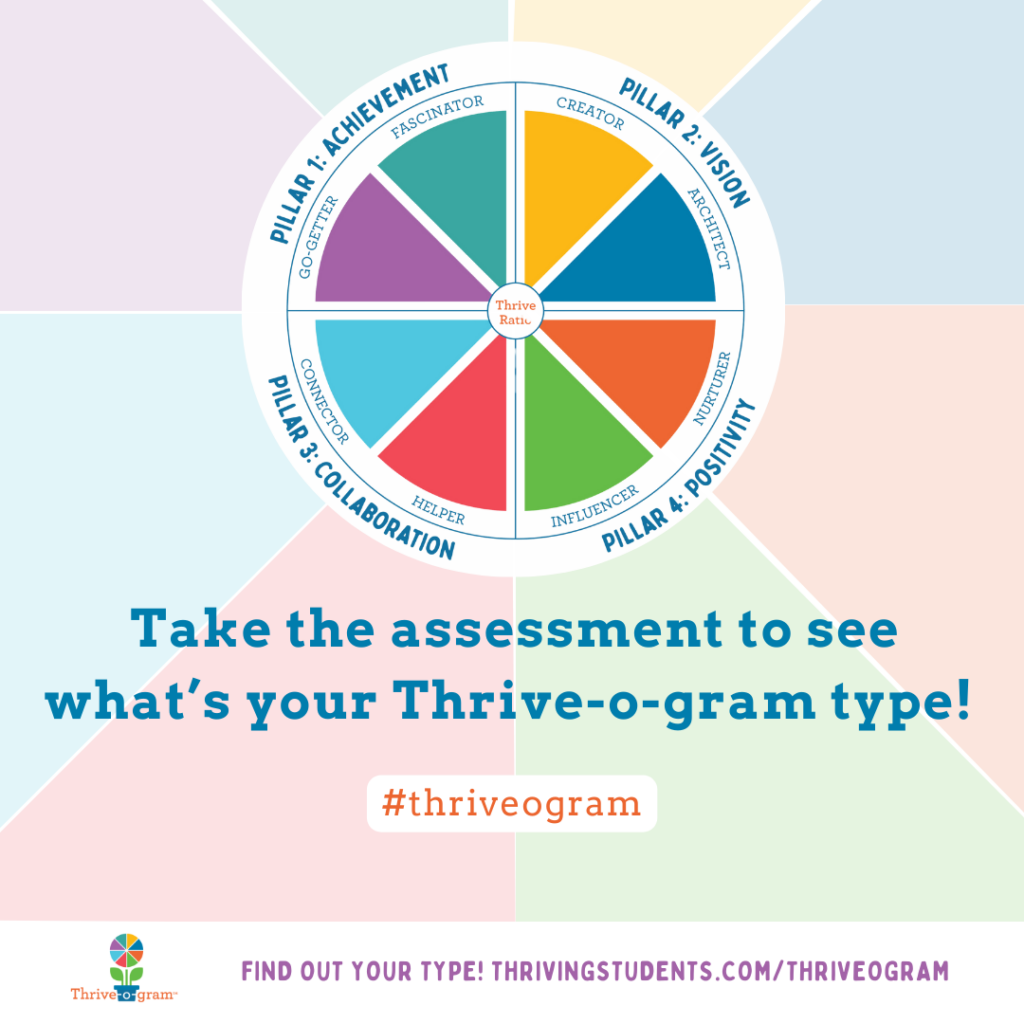
Retain Your School Psychologists
I’m definitely biased, but I’m going to say it anyway: School psychologists are one of the most versatile assets schools have for supporting students, teachers, and families (just check out the National Association of School Psychologist’s list of what we can do here!).
Unfortunately, due to shortages, school psychologists are often overworked in the role of special education assessment (I call it the “diagnose and adios” model) and crisis management, and they are underutilized in prevention, intervention, and school-wide support (a “prevention and intervention specialist” model).
According to a survey of 18,000 school psychologists in my online community, this role restriction is one of the primary sources of burnout. School psychologists are spending time with paperwork, not kids. That’s why retaining school psychologists is so critical, because with each one who quits, the problem gets worse for those who stay, as they absorb their caseloads.
I’ve spent the past decade researching what helps school psychologists stay in the profession and expand their roles beyond assessment and “triage” mental health services. Here’s a “starter kit” blog post for school psychologists (and the leaders who want to keep them!)
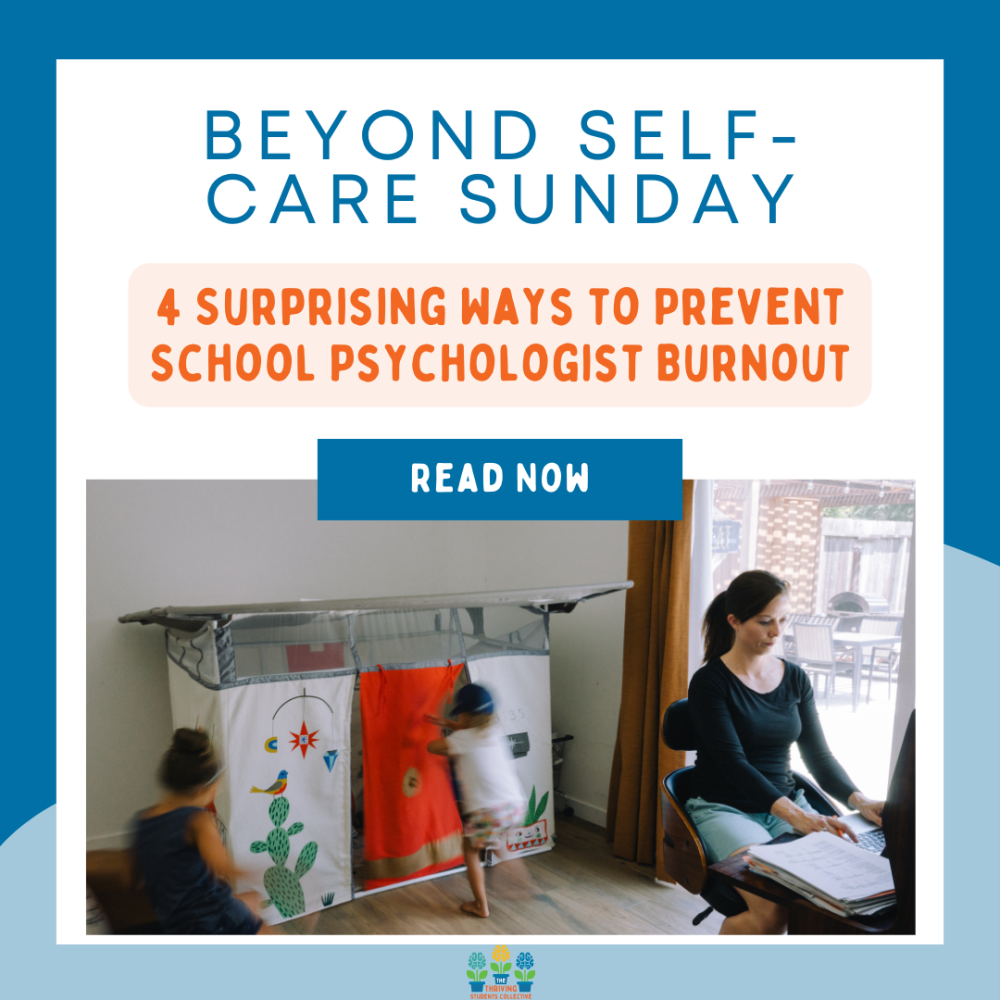
Up-skill Non-Mental Health Providers
Teachers have always done soooooo much more than just teaching their subject areas. Now, with a shortage of mental health providers, the collective trauma of the pandemic, and the scramble to address learning loss, the reality is, they are filling the roles of teacher, counselor, behavior and intervention specialist, social-emotional coach, and more, all at once. A teacher friend of mine recently texted me for help because a student with ADHD runs out of the classroom or hits others with little to no warning signs and nothing seems to be working: “I have never had a student like this. I don’t know what to do to reach him.“
She’s not alone. The number of students in special education has doubled in the past 45 years and while strong progress has been made to integrate students with disabilities into general-education classrooms, educator instruction on how to support them hasn’t kept pace. It doesn’t take a rocket scientist to make the connection that having kids in your classroom you don’t feel equipped to help with their learning, behavior, or emotional regulation is a huge source of stress for teachers (and unlike my friend, not everyone has a friend who happens to be a school psychologist that they can text for support).
On the bright side, according to a recent National Center for Learning Disabilities study, the overwhelming number of teachers are highly interested in learning specific strategies to teach struggling.
The challenge is time. With teacher’s plates already full, when will they have time to learn trauma-informed practices, find tools to learn how to de-escalate children with behavioral challenges, or teach vital executive functioning skills to kids with disabilities like ADHD and Autism? All while protecting their own wellbeing?
Let’s look to how teachers are currently enjoying learning (hint: it’s not 8 hours of listening to professional development in a cafeteria). Teachers who want inspiration and support are looking to short-form platforms like #TeacherTok on TikTok and #TeachersofInstagram on Instagram.
The problem is, a recent study showed that: 83.7% of mental health advice on TikTok is misleading, while 14.2% of videos include content that could be potentially damaging.
Yikes.
So I say, let’s give the people what they want, but with trusted sources…
That’s what our Thrive Hive TV streaming service is about! There’s a free 30-Day Subscription for all educators and mental health providers in K12.

Anticipate Funding Cycles
One silver lining to the pandemic is that K12 schools are receiving an influx of funding for mental health initiatives. However, what happens when the COVID-era funding dries up? What about all the outsourced supports like expert tutoring and bringing mental health services in the schools? What happens when all the external supports we’ve poured into the schools also sunset? Our schools will be left without support again.
Here’s a hot take–if you build capacity for mental health and learning support from within our schools now, instead of solely relying on outsourcing it, you can build a system where mental health (for both adults and students) is in the DNA of our schools, not just in crisis or as a “nice to have service.”
When we retain our staff and equip them with tools to address the mental health crisis, we are building in sustainability beyond the whims of funding cycles.
Get ready for AI Solutions
It won’t be long before district leaders’ inboxes will be full of “we solve the mental health crisis with this Artificial Intelligence thingie!” (if they’re not already). My take as a school psychologist? While AI can’t ever fully replace school psychologists or school-based mental health providers, AI solutions can help with freeing up their time for more attention on students.
I know this because in my Thriving School Psychologist community, we’ve been “dabbling in the AI arts” to automate report writing since last summer with great success. What used to take hours and hours to write can now take minutes. Since we’ve been meet monthly on zoom since 2017 (before it was a THING), we have the means to quickly share what we learn with each other to automate workflow and how we can use AI with ethical and privacy guardrails in place.
To get a sense of how excited school psychologists are about the potential of AI, I recently hosted a “How to Use Chat GPT to Automate Your Workflow” workshop and 2000 school psychologists signed up in 24 hours. I had to buy a bigger zoom room because over 800 school psychologists showed up live! The “mind blown” emoji was dropped. The words “game changer” were used over and over. And the time-saving Kracken was released!
For those school psychs out there who missed it, here’s a free downloadable guide which includes step-by-step instructions, sample prompts, and tips for protecting privacy.
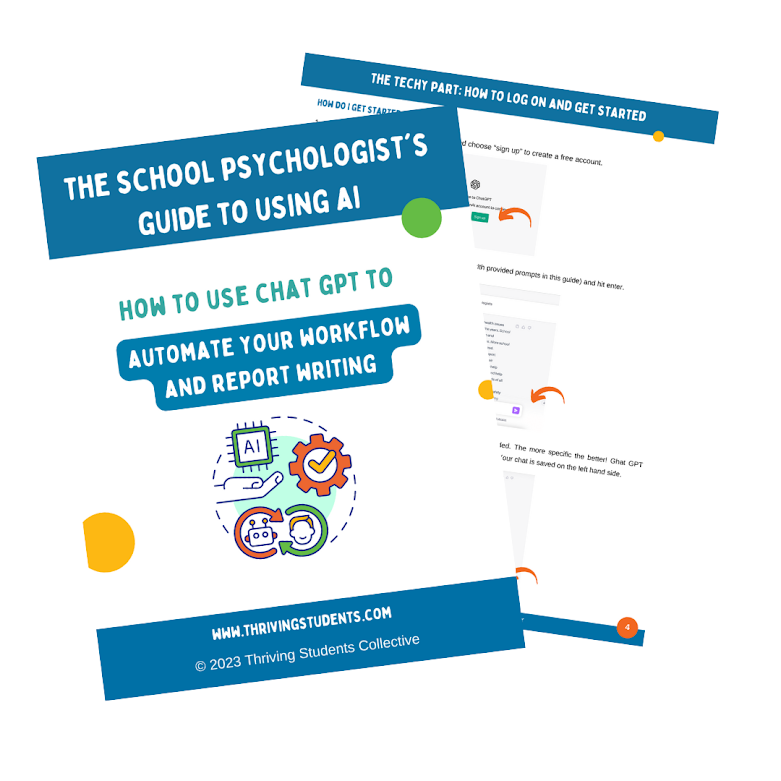
P.S. My next newsletter will be all about my favorite AI solutions in K12…entitled, “The Robots are Coming, We Might As Well Be Ready” so go ahead and subscribe to this newsletter so you don’t miss it!
Thriving in Action
This is my first newsletter and as I was thinking of what I wanted to share with the larger K12 community, I knew I had to share one of my favorite mantras I use when doing professional development for schools:
Information is not transformation.
If information was transformation, we would all be super fit, as we “know” we should eat healthy and work out more!
It’s all about turning research into reality.
So it’s one thing to share a bunch of high-level solutions in a newsletter, and it’s another to have proof of concept that a big idea works in real time, in schools, where the stress is actually occurring.
One of the best parts of my work is I get emails and letters from participants in my professional development courses like this one I got from Sarah, a school psychologist in Virginia. Like many overworked school psychologists, she was on the brink of burnout, working every night and weekend. In just 10 months in the Thriving School Psychologist course and community, she reclaimed 200 hours of her free time back and is healthier, happier, and enjoying her job again. Check out her incredible story (and others) here!
We can’t cure the slow pipeline of getting more mental health providers in our K12 schools tomorrow, but we can provide much needed support to the educators and mental health providers we have…right now.
Take care (for reals),

If you’re interested in bringing Thriving Students Platform to your school or district CLICK HERE to connect with us!
Want more K12 News You Can Use? Subscribe here!
***
Dr. Rebecca Branstetter is a school psychologist and co-founder of The Thriving Students Collective, which provides professional development, engaging online courses, and a supportive online community that prioritizes whole-school wellness and equips educators and parents with practical tools to empower every learner’s success. She also has a TikTok account all about burnout prevention in K12 that her middle school daughter has endorsed as “Cringe, but good dancing.”
